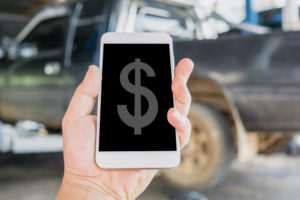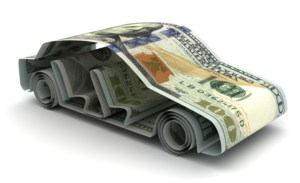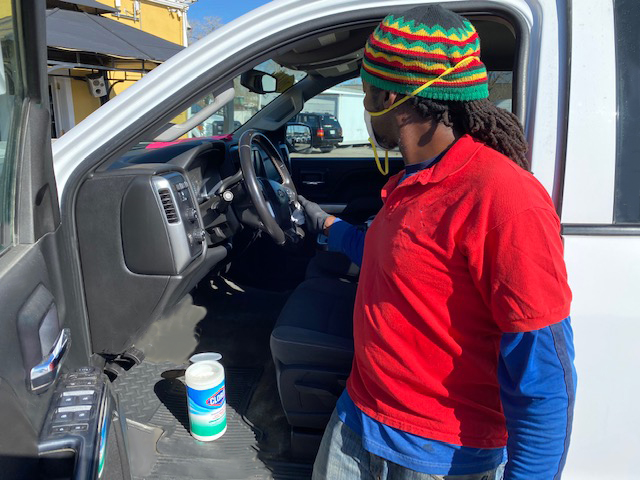Dye Autos Denver Area Truck and Automotive Blog
How to Determine How Much You Should Spend on a Used Car
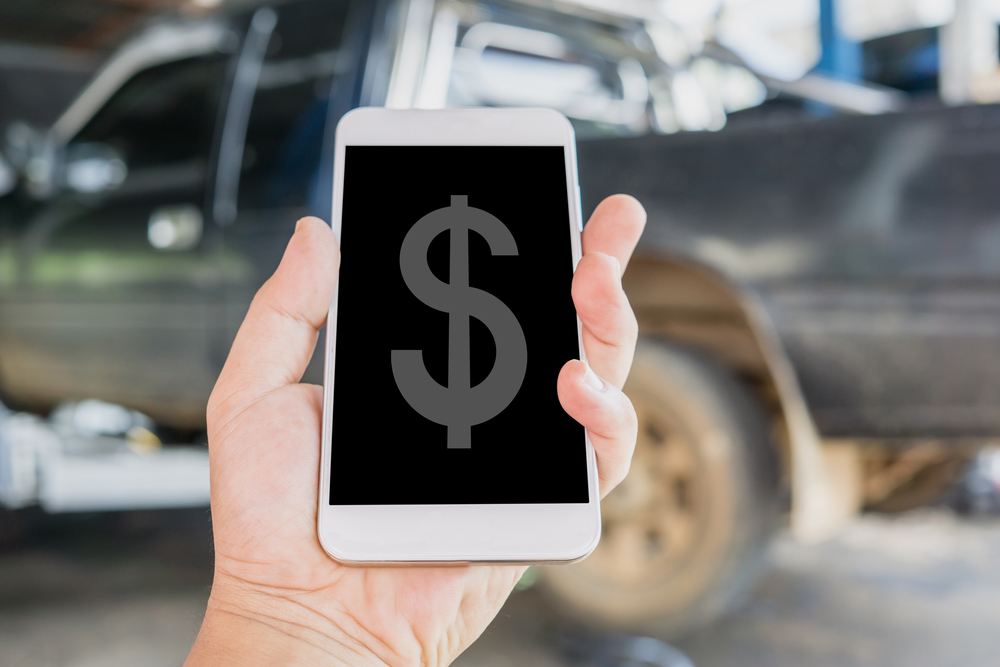
It’s super smart to know your financial health before setting sights on a new car. Many customers we talk to don’t come equipped to determine the best used car for their budget. You can save yourself a lot of money – and a lot of headaches – by doing some simple math before you make your final decision.
If you don’t have a clear picture of how much you can actually afford, it’s easy to bite off more than you can chew. Many people fall in love with a dream car and ignore red flags when it comes to the math.
Even though your (new) used car has monthly payments that seem manageable, it’s always best to know for sure.
How Much Should You Spend on a Used Car?
Buying a used car is one of life’s biggest expenses, and it’s a purchase where you have control over how much you spend.
Financial experts offer wildly different advice on how much you should spend on a car. One school of thought holds that all your automotive expenses (gas, insurance, car payments) should not exceed 20% of your pretax monthly income.
The general rule of thumb is that you shouldn’t spend more than 20% of your monthly income on your car payment.
Knowing your monthly fuel and insurance costs will also help you make an educated decision if you’re considering multiple vehicles. Some may cost more to fuel up; others might have a higher cost to insure.
What you’ll pay
Most buyers with better-than-average credit will pay less-than-average for financing.
Down Payment
A down payment is usually required by lenders, and it’s definitely a good idea. Why?
- It will reduce the amount you’ll need to borrow.
- It improves your chances of loan approval.
- You may get better terms with a down payment.
- It will reduce your monthly payment.
Your credit history will determine the size of the used car loan you can get. If you have less-than-average credit, the high interest rate will make the amount of your loan even lower.
A down payment will offset the interest, taxes, and fees and widen the selection of vehicles you can choose from.
Taxes and Fees
- Calculate your sales tax rate.
- Estimate your License fees.
- Ask your dealer how much their documentation fee is.
Pro Tip: Know your credit score and work on your credit before you start shopping.
Check your credit report as soon as you start thinking about buying a used car or truck, even if it’s months in advance.
If you’ve got less-than-ideal credit, taking this action will help you even more…and save you tons of time and money.
By cleaning up your credit before applying for a loan, you improve your chances of being approved with decent terms. Cleaning up your credit will include paying off past due accounts, disputing credit report errors, and adding positive information to your credit report.
Do your homework before you buy.
By determining how much you should spend on a used car or truck, you’ll be wise to the bigger picture of vehicle expenses BEFORE you head out the door. You’ll end up with a great vehicle that’s best for you, your family AND your wallet.
Call us!
We shared these tips with you because our current customers have told us how grateful they are for this information. We enjoy helping people decide on the right used car or truck.
We can help you too! Call us at (303) 286-1665 or simply fill out our handy contact form >>here<<.
Read MoreLooking for a Bad Credit Car Loan? Don’t Forget These Important Steps
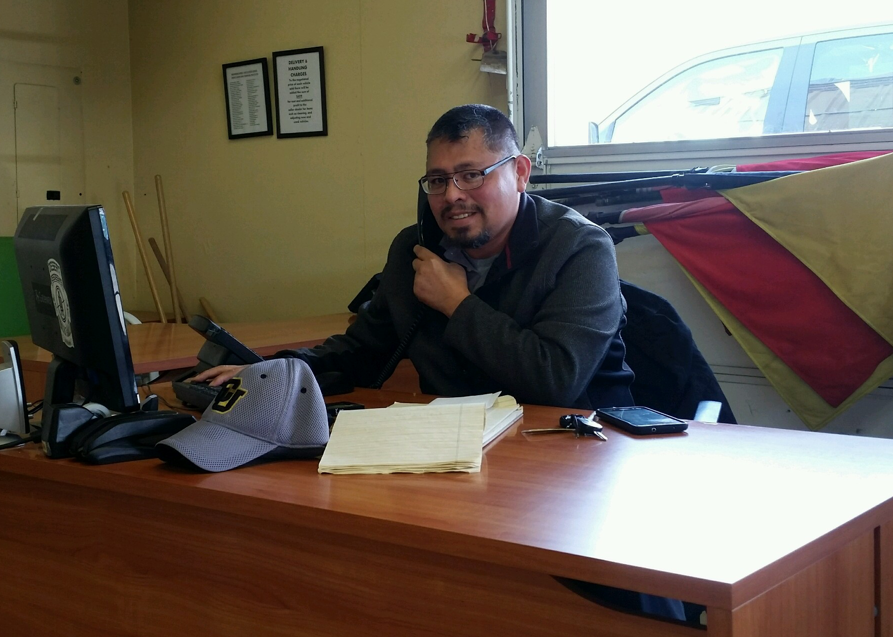 Many of our customers tell us that shopping for a bad credit car loan is just as challenging as shopping for a car. We’ve compiled a list of 9 steps to help you navigate the waters of car and truck loans when your credit is not as good as you’d hoped.
Many of our customers tell us that shopping for a bad credit car loan is just as challenging as shopping for a car. We’ve compiled a list of 9 steps to help you navigate the waters of car and truck loans when your credit is not as good as you’d hoped.
A low credit score is generally defined as a FICO score under 629. You can have a lower score for a variety of reasons, including a history of making late payments, identity theft or simply not having enough years of credit history. Your credit score dictates what type of interest you’ll end up paying on your car loan, and a low score means a higher interest rate.
1. Work on your credit before you start shopping.
Check your credit report as soon as you start thinking about buying a car or truck, even if it’s months or years in advance.
By cleaning up your credit before applying for a loan, you improve your chances of being approved with decent terms. Cleaning up your credit will include paying off past due accounts, disputing credit report errors, and adding positive information to your credit report.
2. Don’t assume the worst.
Never take someone else’s word that your credit is bad. Check for yourself by obtaining your credit report and credit score.
You are entitled to a free credit report from each of the three credit reporting agencies (Equifax, Experian, and TransUnion) once every 12 months. You can request all three reports at once, or space them out throughout the year.
3. Shop around.
When you’ve got bad credit, “you’re likely to agree with just about anything a lender offers you. But you shouldn’t just take the first offer you get,” warns Chris Kukla, senior vice president at the nonprofit Center for Responsible Lending.
Look for ways to save money on a car loan:
- Shorter term
- Factor in all the costs (insurance, gas, parking fees, etc)
- Get 2-3 quotes
- Make additional payments if you can
4. Start close to home.
Even if you don’t think you can get a loan, go to your bank or your credit union first. Apply at the bank where you have a checking account or your credit union. And see if your employer or insurance company offers auto financing.
Lenders who know you may provide better rates and terms.
5. Seek out a trustworthy dealer.
Believe it or not, car dealers have pretty great car loan options. They work with banks every single day and can often match or have better rates than what you’ve found in your search.
Trust is important and many dealers will work hard to keep yours. If you’ve done business with a dealer before or someone has recommended one (even through Yelp or Google reviews), include a call to your dealer in your purchase process.
6. Don’t go it alone.
Ask a friend or relative to go with you. It’s always better to have a separate pair of eyes and ears when making big decisions.
7. Pay attention to loan terms, not monthly payments.
Look for the lowest annual percentage rate (APR) over the shortest period of time. Write everything down.
If the terms are beyond your means, then consider a different vehicle at a lower price.
Focusing on monthly payments could cause you to pay more much more in financing costs.
8. Be aware of “extras.”
The Center for Responsible Lending advises that car buyers should never allow the loan to be contingent on purchasing any add-on, such as extended warranties, after-market services and even insurance.
9. Get Pre-Approved.
This fast and easy process lets you choose how much you want to borrow based on the type of vehicle you’re looking for. You’ll know ahead of time what to expect…and that means less anxiety and more peace of mind.
Let Dye Autos put our experience to work for you. Pre-approved car and truck financing with DYE Autos is just a click away. Visit this link >>>here<<<!.
One of our helpful finance specialists will contact you to discuss available financing options, including the amount you’re qualified to finance.
“If it’s a truck you wanna buy, you’d better call DYE!”
Read More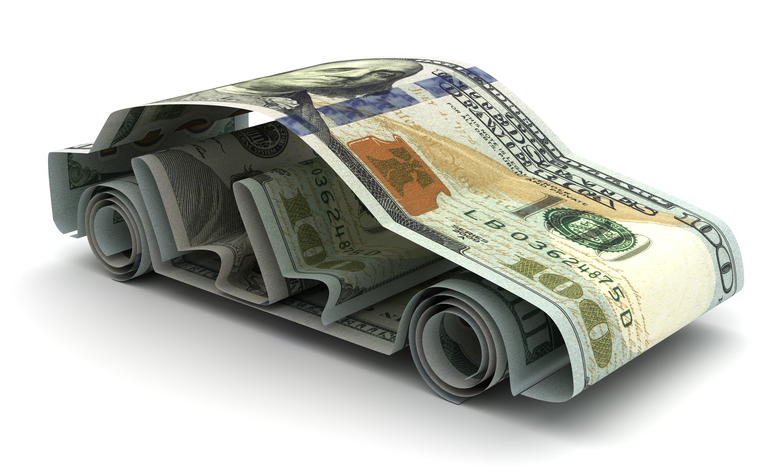 It’s time for you to get a new car or truck, and you’re weighing your financing options. It seems like such a simple decision. If you have enough money to pay cash for a new car, should you do it? While that can be a smart choice, it’s not always the right option. Here are the pros and cons of paying cash vs financing a car.
It’s time for you to get a new car or truck, and you’re weighing your financing options. It seems like such a simple decision. If you have enough money to pay cash for a new car, should you do it? While that can be a smart choice, it’s not always the right option. Here are the pros and cons of paying cash vs financing a car.
Before we get into the question of cash versus financing, a little background is in order for car shoppers who haven’t had much experience buying a new car.
If that sounds like you, here’s the deal: When it comes to buying a car or truck, you generally have two ways to go. You can either finance the car, which means you pay it off over time, or you can pay cash, which means you buy the vehicle outright as if you’re picking up a new pair of sneakers at the store and handing the clerk your debit card.
The advantage to financing is that you’ll usually end up with a better car than if you’re paying with cash. How? Here’s why.
Let’s say your car budget is $8,000. You can buy a used car if you pay in full. However, if you use that $8,000 as a down payment on a new car, you can expand your automotive horizons greatly. If you have good credit, you can easily afford many new models.
The drawback is that you’ll need to make monthly payments in order to pay off the loan that allowed you to buy the newer, more expensive vehicle. Included in those payments is interest, which is a fee you pay the bank for allowing you to borrow the money in the first place.
Cash isn’t necessarily better.
Buying a car with cash is generally preferable to financing, but there are many situations in which that’s not the case.
Most people don’t have cash to spend on a car. If you’re like many Americans, there’s never enough cash on hand to layout on a car or truck. If you have good credit, interest rates are still low and that cash might be better saved for a rainy day.
If you have bad credit, paying cash could ruin your chances to re-establish your credit. Use some of your cash for a down payment and finance the balance to show lenders you’re serious about repairing your credit.
Here are the pros and cons of paying cash vs financing a car.
Paying Cash
Pros
- Save money because you won’t be paying finance costs.
- Peace of mind in knowing you own your vehicle.
- Convenience of no monthly payments.
Cons
- Losing out on the other opportunities to leverage your cash. You may be able to earn returns on your money if you were to invest it instead of making car payments.
- You’re missing an opportunity to build a more positive credit score.
- If this is all the cash you have on hand, you’ll not have a “nest egg” around for emergencies.
Financing a Car (Getting a Car Loan)
Pros
- Rates are still low for those with good credit.
- Rates are also still lower for those with bad credit (but higher than for those with good credit).
- Build and/or re-establish your creditworthiness.
- Have cash available to invest elsewhere and increase income.
- Peace of mind knowing you’ve got cash available should something unexpected happen.
Cons
- Pay more for the car because of financing costs.
- Time investment recommended for researching lenders and dealerships who can help with financing.
- Paying the monthly payments.
Dye Autos has been helping customers like you with car loans for many years. We’ve got over 70 years experience in auto loan financing and we’re here to help. Call us at (303) 286-1665 or simply use our easy contact form >>here<<.
Read More Buying a car with bad credit can be intimidating. If there was ever a good example of the phrase, “Knowledge is power,” it’s in taking on the process of buying a used car when your credit is less than perfect.
Buying a car with bad credit can be intimidating. If there was ever a good example of the phrase, “Knowledge is power,” it’s in taking on the process of buying a used car when your credit is less than perfect.
The first thing you need to know is…
It’s not hopeless.
Your situation doesn’t have to be grim. If you’ve had a good track record paying previous car loans or your financial issues stemmed from uncontrollable events, you may very well be able to finance your vehicle.
In The Great Recession, many people to lost jobs and eventually made less than they once did. Medical bills, divorce and other unforeseen circumstances happen. You’re not alone.
Tip #1: Talk to your dealer first
If you’ve worked with a dealer in the past and have a good relationship, call them first. They’ve already established trust and credibility and won’t steer you wrong.
Tip #2: Work on your credit before you start shopping
Check your credit report as soon as you start thinking about buying a new car, even if it’s months or years in advance.
By cleaning up your credit before applying for a loan, you improve your chances of being approved with decent terms. Cleaning up your credit will include paying off past due accounts, disputing credit report errors, and adding positive information to your credit report.
Tip #3: Shop for a car loan just as you would if you didn’t have negative marks on your credit report.
When you’ve got bad credit, “you’re likely to agree with just about anything they’ll give you. But you shouldn’t just take the first offer you get,” warns Chris Kukla, senior vice president at the nonprofit Center for Responsible Lending.
Look for ways to save money on a car loan:
- Shorter term
- Factor in all the costs (insurance, gas, parking fees, etc)
- Get 2-3 quotes
- Make additional payments if you can
Tip #4: You’ll need a down payment
A down payment is usually required by lenders, and it’s definitely a good idea.
Why?
- It will reduce the amount you’ll need to borrow.
- It improves your chances of loan approval.
- You may get better terms with a down payment.
- It will reduce your monthly payment.
Your credit history will limit the size of the car loan you can get and a high interest rate will make the amount even lower. A down payment will offset the interest, taxes, and fees and widen the selection of vehicles you can choose from.
Tip #5: Yes, you can get Pre-approved
This fast and easy process lets you choose how much you need to borrow based on the type of vehicle you’re looking for.
Used car financing with DYE Autos is easy, click >>>here<<< to get pre-qualified. One of our helpful finance specialists will contact you to discuss any available financing options, including the amount you’re qualified to finance.
Tips #6: Read all the paperwork
Loan documents are confusing. With your money and your credit on the line, it’s important to take time to understand the terms of the loan.
Make sure the paperwork matches what you verbally agreed to.
Need help financing a car or truck with bad credit?
We’re here to help. We have over 100 years combined experience financing cars and trucks. Together, we’ll get it done! Call (303) 286-1665 or use our handy contact form >>here<<.
Read More They say timing is everything. When you’re thinking about the best time to buy a used car, you can save hundreds or even thousands of dollars if you pick the right time. And if you don’t? It could cost you BIG if you don’t get the timing right.
They say timing is everything. When you’re thinking about the best time to buy a used car, you can save hundreds or even thousands of dollars if you pick the right time. And if you don’t? It could cost you BIG if you don’t get the timing right.
Timing and discounts are nothing new, which means those who pay attention to the calendar come out on top. The discounts even fluctuate based on what day of the week or time of the month you buy.
Here at Dye Autos, we have over 100 years combined experience in selling cars. We’ve seen it all and we’re happy to share our knowledge with you.
Before we reveal the #1 insider’s tip for the best time to buy a used car, let’s talk more about timing.
- Always buy a used car before your current vehicle leaves you stranded.
- Always be prepared when you go to the dealership to buy a used car.
- If that timing coincides with the best times on the calendar to buy, you can get a great deal.
Mondays
Some people think that shopping on busy weekends means the dealer will give a discount. The data, however, shows that isn’t 100% true. Visiting a car dealer in the middle of the day or on some weekends won’t necessarily help shoppers get a great price.
One good strategy is to shop on a Monday. TrueCar’s buying data shows that buyers saved an average of 8.1% on Mondays, compared to Saturdays (7.77 percent) or Sundays (7.49 percent).
On Mondays (or other weekdays, to a lesser extent), the salesperson and customers will have more time to negotiate the best deal. A side benefit is that most lenders will be open for business on a weekday, so you can arrange and finalize your auto loan before you leave the dealership.
The #1 Insider’s Secret: “End of The…”
There’s something about deadlines that motivates us dealers to give smokin’ deals on cars. The best times to buy a used car are at the end of the….
1. End of the day
Make your offer later in the day. If a salesperson hasn’t racked up a sale all day, he or she may be more amenable as the minutes tick toward closing time.
2. End of the weekend
Car dealers have weekend goals as well as monthly goals. Various cars on the lot need to move to make room, so management puts up bonuses on specific vehicles to sell them fast.
If the car or truck you want is on that list, especially if the salesperson hasn’t sold it by Sunday afternoon, you can grab a sweet deal by going in at the end of the weekend.
3. End of the month
You can get a great deal at the end of the month. Dealerships are always motivated to sell cars, but at the end of the month their motivation increases exponentially. If you want to take advantage of the dealer’s urgency to meet their monthly goals, start your negotiation a few days before.
4. End of the year
Every dealer has annual quotas and there are bonuses for salespeople who meet certain annual figures. Take advantage of this. If you can wait, buy your new car in the last two weeks of December, when dealers are dying to beat their quotas. Annual sales bonuses are sometimes incentive enough for dealers to knock off up thousands from the price.
If you can’t wait until the end of the year…
Some buyers can’t wait until the end of the year to buy a used car. Don’t worry. There are opportune buying times year-round. Just remember the #1 Insider’s Secret “End of the…”
Need help buying a car or truck? We’re here to help! Call us at (303) 286-1665 or simply use our handy contact form >>here<<
Read More

